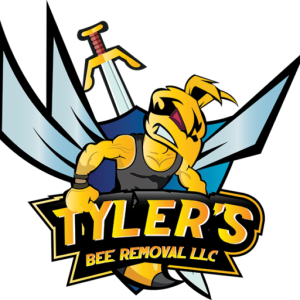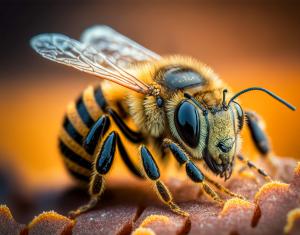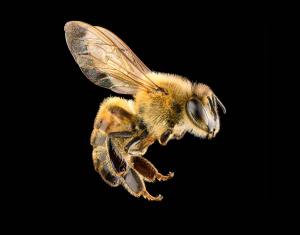Austin bee removal service in high demand

Austin Texas Bee Removal
Austin bee removal service is in high demand after an explosion of wasps, bees, and hornets in Austin Texas this year. #atx #austintx #austintexas #austinbees
Austin Texas bee removal refers to the process of safely removing bees from properties in Austin, Texas. Bees are an essential part of the ecosystem and are responsible for pollinating many crops and plants. However, they can also pose a danger to humans if they build their hives in or around residential areas. When bees are found in or around homes, they can cause property damage and pose a risk of stinging, which can be life-threatening for individuals who are allergic to bee stings. Austin Bee Removal companies are equipped to safely remove bees from properties without causing harm to the bees or the environment. They use specialized equipment and techniques to relocate the bees to a more suitable location.
Austin Texas horney removal is similar to Austin Bee Removal, but it specifically involves the removal of honey bees.
Honey bees are a species of bee that is known for producing honey and beeswax. Like other bees, they are essential pollinators and play a vital role in the ecosystem. However, they can also be a nuisance when they build their hives in or around homes. Honey bee removal services in Austin, Texas use specialized equipment and techniques to remove the bees and their hives from properties safely. Honey and beeswax are often collected and used for various purposes, such as making honey or beeswax candles.
Austin Hornet Removal refers to the process of safely removing hornets from properties in Austin, Texas. Hornets are a type of wasp that is known for its painful and venomous sting. When hornets build their nests in or around homes, they can pose a danger to humans and pets. Austin Hornet Removal services use specialized equipment and techniques to safely remove hornets from properties without causing harm to the hornets or the environment. They may also provide tips on how to prevent hornets from returning to the property.
Austin Wasp Removal refers to the process of safely removing wasps from properties in Austin, Texas. Wasps are a type of flying insect that is known for its painful sting. They are often mistaken for bees, but they have slimmer body and a narrower waist. When wasps build their nests in or around homes, they can pose a danger to humans and pets. Austin Wasp Removal services use specialized equipment and techniques to safely remove wasps from properties without causing harm to the wasps or the environment. They may also provide tips on how to prevent wasps from returning to the property.
Types of Bees in Austin, Texas include honey bees, bumblebees, carpenter bees, and sweat bees. Honey bees are the most common type of bee found in Austin, and they are responsible for pollinating many of the crops and plants in the area.
Bumblebees are also common and are known for their fuzzy bodies and loud buzzing sounds. Carpenter bees are larger than other types of bees and are known for their ability to burrow into wood. Sweat bees are small, metallic-looking bees that are attracted to sweat and can often be found around swimming pools.
Dangerous Bees in Austin include Africanized honey bees, which are also known as "killer bees." These bees are a hybrid of African honey bees and European honey bees and are known for their aggressive behavior. They are easily provoked and will attack in large numbers, which can be life-threatening for individuals who are allergic to bee stings.
Dangerous Hornets in Austin include the bald-faced hornet, which is known for its large size and painful sting. They are often found in wooded areas and build their nests in trees or on the sides of buildings.
Dangerous Wasps in Austin include the paper wasp, which is known for its painful sting and aggressive behavior. They build their nests in sheltered areas, such as eaves, and can be easily provoked if their nest is disturbed.
Q: What are the common types of bees found in Austin, Texas?
A: Austin, Texas is home to a variety of bees, including honeybees, bumblebees, carpenter bees, and Africanized honeybees. Honeybees are the most common type of bee found in Austin, and they are important for pollinating local plants and crops.
Q: What is the difference between honeybees and Africanized honeybees?
A: Africanized honeybees, also known as "killer bees," are a hybrid of African and European honeybees. They are more aggressive than their European counterparts and are known to attack in large numbers if they feel threatened.
Africanized honeybees have been known to pursue their targets for up to a quarter-mile.
Q: What should I do if I encounter a swarm of bees?
A: If anyone is to encounter a swarm of bees, it is important to remain calm and slowly back away. Do not swat at the bees or make any sudden movements. If a person is stung, remove the stinger and seek medical attention if someone experiences an allergic reaction. It is important to contact a professional bee removal service to safely remove the swarm.
Q: What are some common signs of a bee infestation?
A: Common signs of a bee infestation include an increase in bee activity around a property, honeycomb formations, and buzzing sounds coming from walls or other enclosed spaces. A person may also notice dead bees or honey around a property.
Q: What should I do if I have a wasp or hornet infestation?
A: If there is a wasp or hornet infestation, it is important to contact a professional pest control service. Wasps and hornets can be dangerous, and attempting to remove a nest it can result in serious injury. A professional will have the proper equipment and training to safely remove the nest.
Q: What are the most dangerous types of bees, wasps, and hornets in Austin?
A: The Africanized honeybee is considered the most dangerous type of bee in Austin. Paper wasps and yellow jackets are the most common types of wasps found in the area and can also be dangerous if provoked. The bald-faced hornet is the most aggressive type of hornet found in Austin and should be approached with caution.
Q: Can I prevent bee, wasp, and hornet infestations?
A: To prevent bee, wasp, and hornet infestations, it is important to seal any cracks or gaps in a home's exterior, regularly clean outdoor trash cans and recycle bins, and avoid leaving food or sugary drinks outside. It's wise to avoid wearing brightly colored or floral-patterned clothing, as these can attract bees and wasps.
erik avery
DIQSEO
email us here
Visit us on social media:
Facebook
Instagram
Austin Texas bee removal services
Legal Disclaimer:
EIN Presswire provides this news content "as is" without warranty of any kind. We do not accept any responsibility or liability for the accuracy, content, images, videos, licenses, completeness, legality, or reliability of the information contained in this article. If you have any complaints or copyright issues related to this article, kindly contact the author above.




